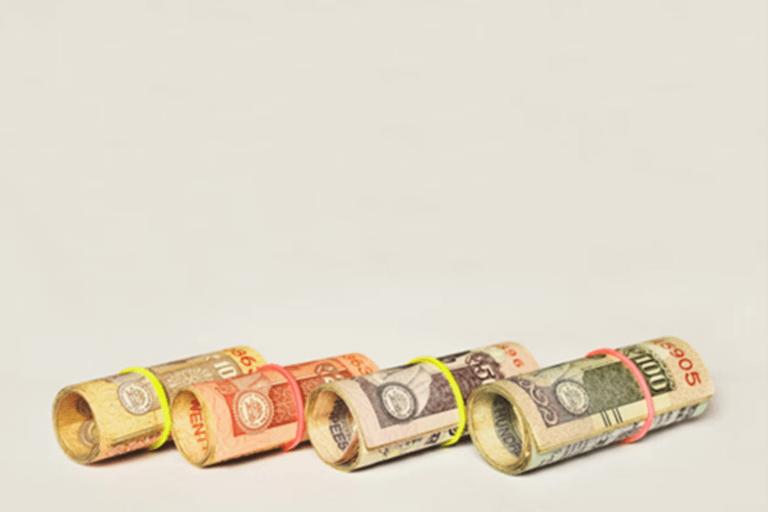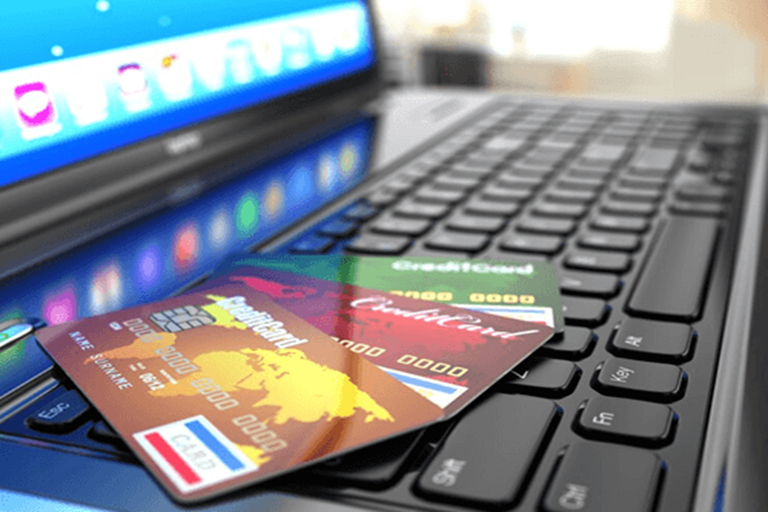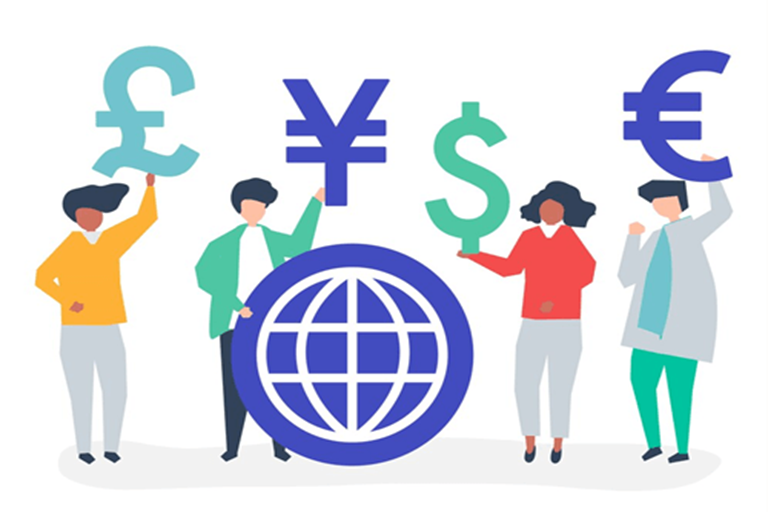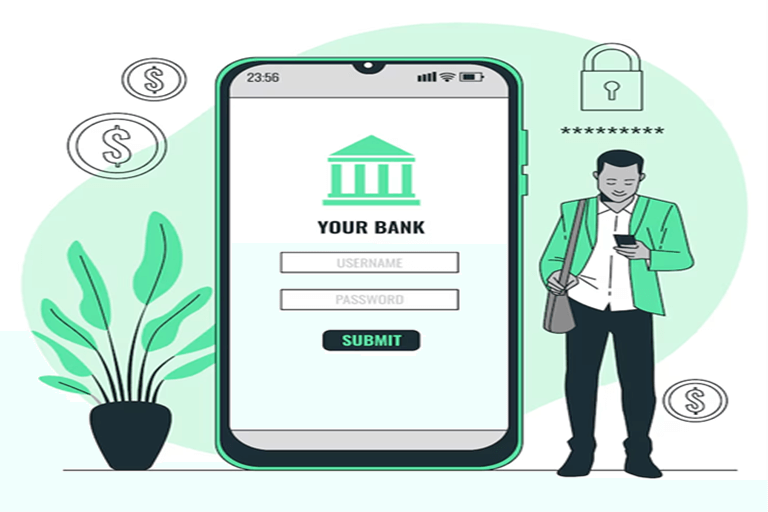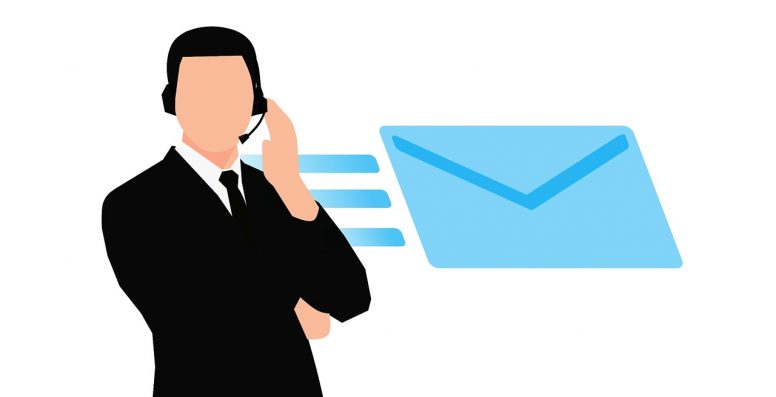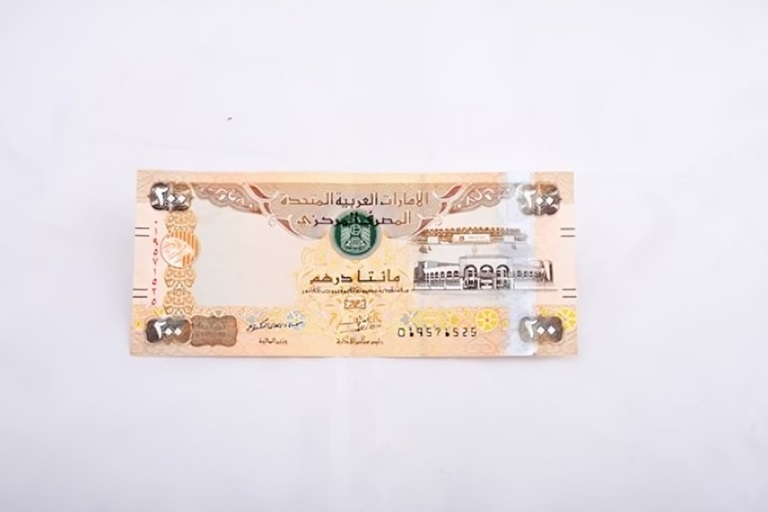
Which Currency is Best to Use in Dubai?
Table of contents
Dubai, one of the world’s most vibrant and luxurious destinations, attracts millions of tourists and business travellers each year. Known for its towering skyscrapers, world-class shopping malls, and rich cultural experiences, Dubai’s allure often raises a common question among visitors: Which currency is best to use in Dubai?
Understanding the currency system and payment preferences in Dubai is essential to ensure smooth transactions, avoid unnecessary exchange costs, and maximize your travel budget. In this blog, we’ll provide a comprehensive guide to using currency in Dubai, including tips for exchange, payment methods, and smart money management.
Official Currency of Dubai
The official currency of Dubai, as well as the entire United Arab Emirates (UAE), is the UAE Dirham (AED). It is abbreviated as AED, Dhs, or Dh and is often referred to simply as the “Dirham.”
• Currency Code: AED
• Symbol: د.إ
• Subunit: 1 Dirham = 100 Fils
• Common Denominations:
- Coins: 1, 25 fils, 50 fils
- Banknotes: 5, 10, 20, 50, 100, 200, 500, and 1,000 Dirhams
The Dirham is pegged to the US Dollar at a fixed rate of approximately 1 USD = 3.67 AED, which provides stability and predictability for travellers and businesses.
Should You Exchange Money Before Traveling to Dubai?
While it’s always wise to carry some local currency for emergencies, exchanging large amounts before your trip may not be the best option. Here’s why:
Advantages of Exchanging Before Travel:
• Convenience: You arrive with ready cash for immediate expenses like transport or tipping.
• Time Savings: No need to hunt for currency exchange counters upon arrival.
Disadvantages:
• Poor Exchange Rates: Exchange rates offered at home are often less competitive than those in Dubai.
• Fees: Banks and currency exchange services may charge commissions or hidden fees.
Best Practice: Carry a small amount of AED (around 200–300 AED) for immediate needs and exchange the rest in Dubai for better rates.
Exchanging Currency in Dubai
Dubai offers numerous options for exchanging currency at competitive rates. Some of the best places to exchange money include:
1. Currency Exchange Counters: Specialized exchange counters like Al Ansari Exchange, UAE Exchange, and Al Rostamani International Exchange are widely available in malls, airports, and commercial areas. They offer competitive rates with minimal fees.
2. Banks: Banks in Dubai also provide currency exchange services, but they may charge slightly higher fees than specialized exchange counters. However, they are reliable and secure.
3. Hotels: While convenient, exchanging money at hotels is not recommended as their rates tend to be less favourable.
4. ATMs: ATMs in Dubai allow you to withdraw AED directly, often at better rates than currency exchange counters. Be mindful of:
- Foreign transaction fees from your home bank.
- ATM withdrawal fees are charged by the local bank.
Can You Use Foreign Currencies in Dubai?

While the Dirham is the official currency, many establishments in Dubai accept major foreign currencies such as USD, EUR, and GBP. However, this is not always the best option:
Pros of Using Foreign Currency:
- Convenience: Avoids the need for immediate currency exchange.
- Accepted in Tourist Areas: Major hotels, malls, and some restaurants may accept foreign currencies.
Cons:
- Poor Exchange Rates: Merchants often apply their own conversion rates, which are less favourable than market rates.
- Limited Acceptance: Small businesses, public transport, and local markets typically require AED.
Best Practice: Even if foreign currencies are accepted, it’s better to pay in AED to avoid unfavourable exchange rates and potential confusion.
Using Credit and Debit Cards in Dubai
Dubai is a cashless-friendly city, with most businesses accepting major credit and debit cards like Visa, Mastercard, and American Express. Here’s what you need to know:
Advantages:
• Convenience: No need to carry large amounts of cash.
• Global Acceptance: Cards are widely accepted at hotels, malls, restaurants, and tourist attractions.
• Rewards: Many cards offer cashback, travel points, or other perks for international transactions.
Potential Drawbacks:
• Foreign Transaction Fees: Some banks charge fees (1–3% of the transaction) for purchases in foreign currencies.
• Dynamic Currency Conversion (DCC): Always opt to pay in AED rather than your home currency to avoid hidden DCC charges.
Prepaid Forex Cards:
Prepaid forex cards loaded with AED can be a cost-effective alternative to credit/debit cards. They offer:
• Fixed exchange rates at the time of loading.
• Lower fees compared to international credit cards.
How Much Cash Should You Carry?
Dubai is modern and well-equipped for digital payments, but carrying some cash is still advisable, especially for:
• Taxis (not all taxis accept cards).
• Souvenirs at traditional markets like souks.
• Tipping (common in hotels, restaurants, and for tour guides).
Daily Cash Estimate:
• Budget Travelers: 100–200 AED/day
• Mid-Range Travelers: 300–500 AED/day
• Luxury Travelers: 1,000+ AED/day
Understanding Exchange Rate Variations
Exchange rates can fluctuate daily based on market conditions. To get the best rates:
• Compare rates online or at multiple exchange counters.
• Use apps like XE Currency or OANDA to check real-time rates.
• Avoid exchanging currency at airports unless absolutely necessary due to their high rates.
Tipping Culture in Dubai
Tipping is not mandatory in Dubai but is appreciated for good service. Knowing when and how much to tip can help you manage your cash:
• Restaurants: 10–15% of the bill (if not already included).
• Taxis: Round up to the nearest 5 AED.
• Hotel Staff: 5–10 AED for porters and housekeeping.
Shopping in Dubai
Dubai is a paradise for shoppers, offering everything from luxury brands to traditional souvenirs. Understanding payment norms can save you money:
• Malls: Accept cards and AED.
• Souks: Cash (AED) is preferred, and haggling is common.
Tips for Managing Money in Dubai
1. Avoid Dynamic Currency Conversion: Always pay in AED when using cards.
2. Choose the Right Exchange Method: Compare rates and fees to get the best deal.
3. Use a Forex Card: Load it with AED for secure and cost-effective transactions.
4. Stay Alert: Be cautious of hidden fees, such as ATM withdrawal charges or conversion rates.
5. Monitor Expenses: Use banking apps or expense trackers to stay within your budget.
The best currency to use in Dubai is undoubtedly the UAE Dirham (AED). While foreign currencies and credit cards offer convenience, paying in AED ensures better value for money and smoother transactions. By understanding exchange options, managing your cash wisely, and leveraging digital payment tools, you can enhance your financial experience while exploring the wonders of Dubai.
For comprehensive travel services including tailored holiday packages with thoughtful inclusion of all travel essentials like forex services, Thomas Cook offers expert guidance that enriches your trip planning significantly.
Follow these steps outlined in our guide on currencies to use in Dubai for a hassle-free vacation experience focusing on enjoying everything Dubai has to offer without financial worry!
Table of contents
Our Forex Offerings
Trending blogs for you
Recommended Articles for you
Choosing the Best Forex Card for Your Travel Needs
Reading Time: 9 minutes 0 0 Travelling abroad can be an exciting adventure, but managing your finances while on a trip can sometimes be challenging. When visiting different countries, paying in local currency is essential to avoid the pitfalls of unfavourable exchange rates and […]
Top Zero Markup Credit Cards for Forex Transactions in India in 2025
Reading Time: 9 minutes 0 0 Traveling internationally often comes with various expenses, and one of the most significant is currency conversion. Traditional methods, such as exchanging cash or using credit/debit cards, usually involve hidden charges, hefty conversion fees, and unfavourable exchange rates. Enter […]
Why You Should Consider Trading Forex: 12 Key Insights
Reading Time: 5 minutes 0 0 Foreign exchange trading, commonly known as forex trading, has grown to become one of the most popular forms of trading worldwide. With a daily trading volume exceeding $7 trillion, it represents the largest and most liquid financial market. […]
Key Differences Between Regular Bank Accounts and Overseas Bank Accounts
Reading Time: 5 minutes 0 0 In a globalized world where people frequently travel, migrate, or conduct business across borders, understanding the distinction between regular bank accounts and overseas bank accounts is crucial. While both serve the primary purpose of storing and managing money, […]
Doorstep Forex Delivery and more by Thomas Cook
Reading Time: 2 minutes 0 0 Foreign Exchange today is one of the basic requirements for not only business travellers but tourists as well and getting a Doorstep Forex Delivery when you are really running late is truly a blessing! This is where reputed […]
Hotter Than Hot: Exploring India’s Hottest Destinations
Reading Time: 10 minutes 0 0 Exploring the hottest places in India reveals more than just extreme temperatures; it uncovers a rich tapestry of cultures, intriguing histories, and breathtaking landscapes. From the arid deserts of Rajasthan to the blazing plains of Uttar Pradesh, each […]
10 Best Places To Visit In July In India On A Budget
Reading Time: 11 minutes 0 0 July, with its refreshing monsoon showers, transforms India into a vibrant tapestry of lush greenery and spectacular landscapes. For those who wish to explore the beauty of this transformation without causing a dent in their wallets, there are […]
Top 10 Coldest Places In India You Must Visit This Winter
Reading Time: 8 minutes 0 0 As winter approaches, the quest for crisp air and snow-covered landscapes draws many away from India’s typically mild winters. Embrace the season by venturing into the country’s coldest regions, where each destination offers a unique blend of natural […]
12 Best Places To Visit In November In India In 2025
Reading Time: 8 minutes 0 0 November is a month of vibrant transitions in India, offering an array of travel experiences from the cool Himalayan foothills to the warm beaches of the south. If you’re planning your travel itinerary for November 2024, India presents […]
10 Stunning Places To Visit In October In India To Experience the Autumn
Reading Time: 11 minutes 0 0 10 Stunning Places To Visit In October In India To Experience the Autumn October marks a magical time in India when the monsoon rains have ceased, and the landscape bursts with vibrant colours, making it an outstanding month […]
September Travel Guide – 8 Offbeat Places to Visit in September in India
Reading Time: 4 minutes 0 0 As the monsoon starts to wane, September brings forth the vibrant palette of India with its pleasant climate and colourful festivals, making it an ideal time for offbeat travels. This guide delves into eight unique destinations across India […]
Explore Top Places to Visit in India this August
Reading Time: 11 minutes 0 0 August in India isn’t just about monsoon rains; it’s a month that opens up an array of travel possibilities across the country. From the cool hill stations to the less crowded beaches, the best places to visit in […]
10 Best Places to Visit in November Outside India on a Budget
Reading Time: 8 minutes 0 0 As November rolls in with its mild weather and the promise of new experiences, many Indian travellers start looking for the perfect overseas getaway that doesn’t break the bank. If you’re planning to explore new cultures, cuisines, and […]
Top 10 Best Countries to Visit in October for Stunning Autumn Views
Reading Time: 9 minutes 0 0 Top 10 Best Countries to Visit in October for Stunning Autumn Views As October rolls in, so does the magical palette of autumn, transforming the landscapes of various countries into a vivid mosaic of colours. The crisp air […]
A Simple Explanation of Currency Pairs for Forex Beginners
Reading Time: 4 minutes 0 0 The foreign exchange market, or Forex, is the largest financial market in the world, with trillions of dollars traded daily. For beginners, understanding the basics is crucial to navigating this dynamic market. One of the most fundamental concepts […]
Which Currency is Best to Use in Dubai?
Reading Time: 4 minutes 0 0 Dubai, one of the world’s most vibrant and luxurious destinations, attracts millions of tourists and business travellers each year. Known for its towering skyscrapers, world-class shopping malls, and rich cultural experiences, Dubai’s allure often raises a common question […]
Step-by-Step Guide to Reloading and Unloading Your Forex Card
Reading Time: 5 minutes 0 0 A Forex card is an indispensable tool for international travellers, offering a secure, convenient, and cost-effective way to carry foreign currency. Whether you are a frequent flyer, a student studying abroad, or simply on holiday, a Forex card […]
5 Best Places to Visit in August Outside India in 2025
Reading Time: 9 minutes 1 0 As August approaches, many travellers seek destinations that offer a change of pace from the usual summer heat. Whether you’re escaping the warm Indian climate or looking to experience unique cultural events, August presents the perfect opportunity for […]
What is the Interbank Rate? A Guide to Foreign Exchange Pricing
Reading Time: 4 minutes 0 0 The interbank rate is a cornerstone of global finance, particularly in the foreign exchange (forex) market. It represents the rate at which banks trade currencies with one another, forming the foundation for exchange rates that individuals and businesses […]
8 Best Countries to Visit in July: Top Picks for Your Summer Getaway
Reading Time: 8 minutes 0 0 July is a fantastic month for travel, with the warm embrace of summer casting a golden glow over many of the world’s most captivating destinations. The longer days and vibrant energy make it the perfect time to explore […]
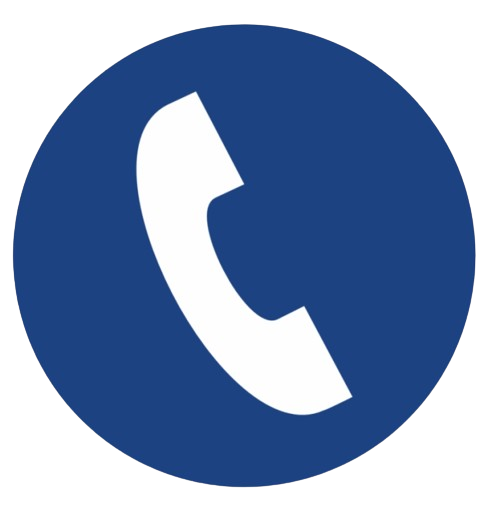 18002099100
18002099100
